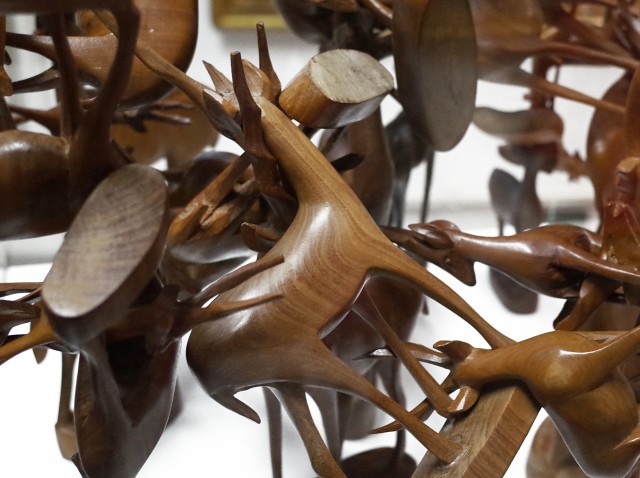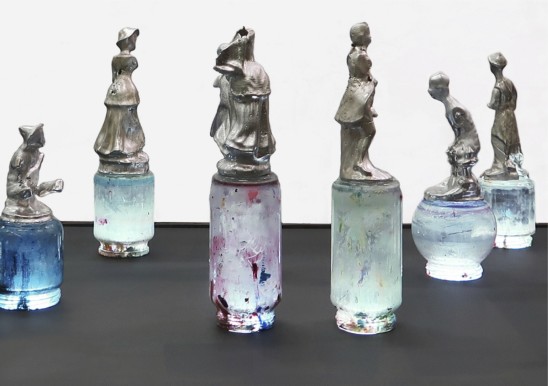Shelved: David Clarke / Tracey Rowledge: Gallery S O London
Gallery S O London is very pleased to announce a new body of artwork by David Clarke and
Tracey Rowledge.
7 – 30 September 2018
Private view 6 September, 6 – 9 pm
Tracey Rowledge & David Clarke
Shelved
7 - 30th September 2018
Private view: 6 September, 6 - 9 pm
Many of us want to know more about an object that we own, perhaps how it was made and its value. Museums sometimes help the public to identify their possessions and when artists Tracey Rowledge and David Clarke arrived at Tunbridge Wells Museum & Art Gallery in 2016 to start their one-year residency, they found boxes of "Unclaimed Enquiries". These were artefacts that had been sent in for identification by members of the public but never reclaimed: objects existing in a kind of limbo, not part of the museum collection but unable to be legally disposed of. The discovery affected Clarke and Rowledge powerfully and in this project they decided to make new lives for other 'shelved' objects which they collected from local charity shops.
In their wider artistic practice, David Clarke and Tracey Rowledge are fascinated by the role objects play in our lives, how familiar objects can become strange and the strange become familiar. They are interested in how the passage of time affects the way we relate to things and how context can change the way we value objects. The trust that they have in each other from previous collaborations enabled them to challenge each other to remodel the found objects and to coax out different meanings through their artistic interventions.
In the resulting seven groups of related objects they question inherent material and aesthetic values: not seeking to beautify but to make us, as visitors, think harder about what we are looking at. Sometimes there is a divergence in material values which shocks. These are not 'ready-mades' moved from a charity shop to the gallery. Instead, through intelligent making the found objects are treated like raw materials, which still carry traces of meaning from their former lives.
Re-presented here for Gallery SO are the seven groups which were first shown in Tunbridge Wells Museum, Library and Adult Education Centre: Landed Gentry, Limbo, Lost Souls, Housed, Still Life, Shelved, and Greetings From Tunbridge Wells.
Louise Taylor, August 2018
Tracey Rowledge lives and works in London, UK. She studied Fine Art at Goldsmiths' College, London, and Fine Bookbinding and Conservation at Guildford College of Further and Higher Education, Surrey, UK. There is an essential paradox that distinguishes Rowledge's work, as her practice straddles fine art and the applied art of bookbinding. Drawing and materiality also play important roles in her work and it is the coexistence of these two ways of thinking that informs the infinitely subtle judgements she is known for. Rowledge was a founding member of the independent artists group 60|40, founded in 2008 (-2013) with David Clarke and Clare Twomey, whose aim was to expand the environment and opportunities for the applied arts. Rowledge is also a founding member of Tomorrow's Past: an international bookbinding collective whose aim is to encourage an alternative and modern approach to rebinding antiquarian books.
David Clarke lives and works in London, UK and Stockholm, Sweden. He is often cited as one of Britain's most highly innovative silversmiths. Since graduating from the Royal College of Art in 1997, Clarke has produced a wealth of covetable objects that have proven pivotal in the renaissance of contemporary British silversmithing. Clarke has a well-earned reputation for producing engaging, intelligent and challenging domestic objects. The aesthetic most often associated with Clarke's work relates to the subversive nature in which he responds to the entrenched traditions of silversmithing, often taking it to surprising extremes. This absolute willingness to experiment and play inappropriately sets Clarke apart.


